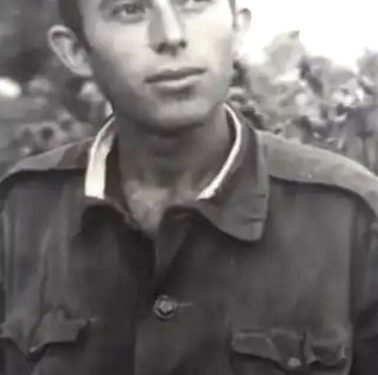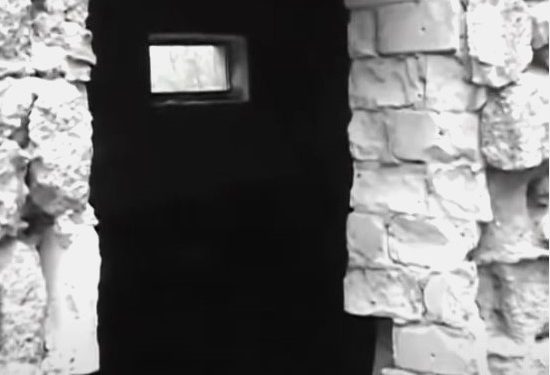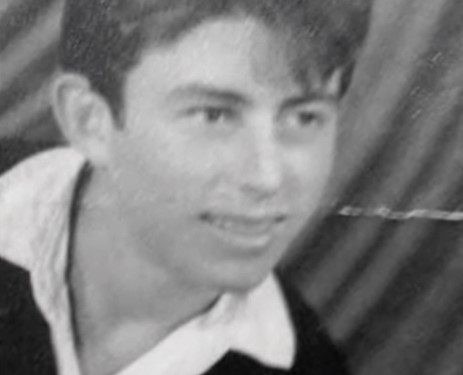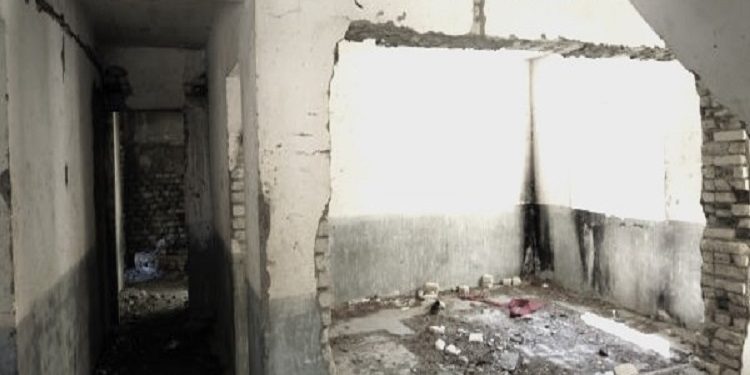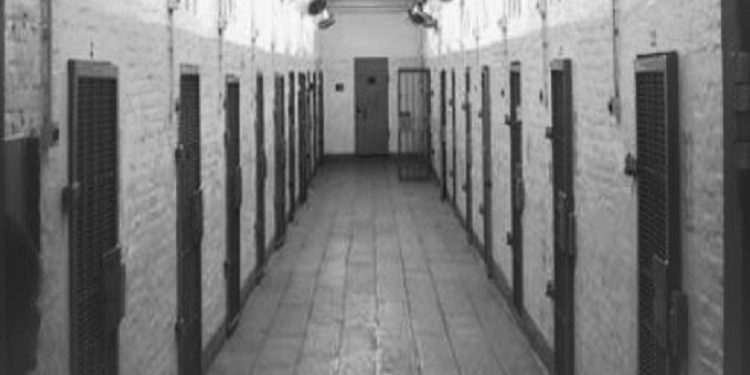By Shkëlqim Abazi
Part Forty-four
Memorie.al / I were born on December 23, 1951, in a black month of a time of sorrow, under the blackest communist regime. On September 23, 1968, the sadistic chief investigator, Llambi Gegeni, the vile investigator Shyqyri Çoku, and the cruel prosecutor, Thoma Tutulani, mutilated me at the Branch of Internal Affairs in Shkodër; they split my head, blinded one eye, deafened one ear, after breaking several ribs, half of my molars, and the thumb of my left hand. On October 23, 1968, they took me to court, where the pitiful Faik Minarolli gave me a ten-year political prison sentence. After my sentence was halved because I was still a minor, a sixteen-year-old, on November 23, 1968, they took me to the Reps political camp, and from there, on September 23, 1970, to the Spaç camp, where on May 23, 1973, during the revolt of political prisoners, four martyrs were sentenced to death and executed by firing squad: Pal Zefi, Skënder Daja, Hajri Pashaj, and Dervish Bejko.
On June 23, 2013, the Democratic Party lost the elections, a perfectly normal process in the democracy we claim to have. But on October 23, 2013, the Director General of the “Renaissance” government sent order No. 2203, dated 23.10.2013, for the termination of a police employee’s duty. Thus, Divine Providence became entangled with the neo-communist “Renaissance” Providence, and precisely on the 23rd, they replaced me with nothing less than a former operative of the Burrel Prison State Security. What could be more telling than that?! A former political prisoner replaced by a former persecutor!
The Author
SHKËLQIM ABAZI
Continued from the previous issue
REPSI
(The forced labor camp)
Memoir
First Meeting
(The Sunken Boat on the Stairs)
- Geography Teacher, Vangjel Kule
Vangjel, using a whip instead of a pointer, explained the next lesson to us. On clear summer nights, with a piece of glass blackened with tar smoke instead of telescope binoculars, he would tell us about the star constellations; the Milky Way, the small and large dipper, the North Star, etc., so accurately and seriously that you’d think he was preparing future astronauts for the moon. For the astronomy lesson, we had no textbooks, but only notes compiled by the professor himself, who gathered the material tirelessly from foreign-language scientific magazines. On this occasion, I want to emphasize that he was a polyglot.
As for geography, the situation was different; there were textbooks and maps. The chapter on physical geography was a solved problem; the texts prepared by geographers were accurate, because after all, mountains, seas, plains, hills, rivers, and lakes do not move from their place, regardless of which country they belong to. The matter became complicated in the chapters of political and demographic geography, because the concept of the lectures differed entirely from what was written in the text. Unfortunately, in school, we had learned them poorly, and even worse, we had learned them backward. He explained to us about the Albanian lands, wherever they were on the Balkan Peninsula.
The professor spoke with passion, turning the topics into debates, so much so that even those who had no intention of learning for a grade followed him with great attention simply out of curiosity. He talked about cities, villages, regions, about peoples who had been displaced, about nations that had been assimilated, about languages that had died and others that had been born, about races and ethnicities that had been eliminated or had survived, etc. When I listened to him, I felt a certain pride in my regional identity; that’s how interesting he made his class.
I’ve gone on a bit about Vangjo, but that’s what he was like—a kind, enigmatic man, deeply connected to his country, but also a citizen of the cosmos. After prison, they forced this brilliant mind to quarry stones with a chisel in the pits of Ura Vajgurore. Later, he married in Shkodër, where he also moved. I would meet the esteemed professor for the last time in the first years of democracy, at the civilian hospital in Tirana, where even the most renowned doctors could no longer recover his worn-out body, yet morally and intellectually, he remained unchanged—stills that same Vangjo! He slowly faded away, to journey toward the endless cosmos he had spoken to us about in such detail. When I learned the news of his death, I had only one thought: “GOODBYE DEAR PROFESSOR!”
5 – The Philosophy Teacher, Hilmi Leka
I have spoken above about some of his physical features, but it was as a teacher that I came to know him more closely and discovered the invisible peculiarities of this philosopher’s character, which was completely unknown to the public. Unfortunately, I was unable to save his many lectures, as the movements from one camp to another and the incessant checks over the years deprived us of these pearls of philosophical thought and, at the same time, impoverished Albanian culture. I have searched among friends and comrades for some of Hilmi’s philosophical treatises, which were confiscated by the vile men, but no one gave me any direction about their fate…! The loss of his work and the works of many other bright minds have caused irreparable damage to Albanian philosophical thought.
The short-statured Hilmi was the most demanding, the most serious teacher I have ever encountered throughout my academic formation, including the professors in the two other faculties I completed after the nineties. During the seminars, this dwarfish man would transform into a giant; like a magician of words, he spoke as if from above the clouds, explaining the views and perspectives of ancient and modern philosophers with such passion that the philosophers themselves would have referenced their thoughts to him, and we, the others, were in the role of spectators at an agora where opposing ideas clashed. Even when the theories of opposites did not convince you, his guttural “r” seemed to hypnotize you; you were left speechless, and you lacked the arguments to object.
He had not been able to graduate; they had taken this opportunity away from him in his final year of faculty when he was expelled from the lecture hall as an enemy element, a descendant of a Ballist family from Libohova. But with a titanic perseverance and a philosopher’s typical stubbornness, with his own abilities, he managed to overcome the barriers and challenge all the philosophers of the Party schools combined. As a worthy disciple of St. Thomas Aquinas, he preached world peace and universal well-being, based on “the force of reason and not the reason of force.” He was absolutely against negative primitivisms like “the greatest good, for the greatest part,” because he believed that the greatest good must be for everyone without distinction.
“If we accept the pseudo-positivist populist theory: ‘the greatest good for the greatest part,’ wittingly or unwittingly, we have accepted forms of modern slavery,” he argued. And he gave concrete examples: “Let’s assume for a moment that we will put this theory into practice! Then, it results that in America, where the number of whites is many times greater than the indigenous redskins, the latter must enjoy fewer rights than the countless whites, so they should be discriminated against! Or from a religious point of view; today we have dozens and hundreds of sects that worship God in their own ways, in the way they think he listens well. Very nice! Since the overwhelming majority of the world’s population are grouped in common sects, such as Catholic or Orthodox Christians, Sunni or Bektashi Muslims, Buddhists, etc., does it mean that members of smaller sects in number must be persecuted and burned like the heretics of old on pyres? No, that is why tolerance and the greatest good for all are preached and needed!” he concluded.
He was equally strict in his judgment of the philosophy that should guide politicians in exercising their civic responsibility to justify the trust of those who give them their vote. He believed in man, in individual abilities, in social responsibilities, in the magic of cultural and educational evolution for change, naturally by respecting and stimulating the elite of every nation. He hated every form of violence, detested armed revolutions that had caused so much damage to humanity. With the power of argument, he opposed all the materialist philosophers who preached war as a solution; he even went so far as to call them: “Shameless charlatans and demagogues, who exploited circumstances and populist anger; inciters of the destructive instinct in the exalted masses,” who directed them to discharge their excess energies in bloody revolts and uprisings, so that the demagogic dictators could then benefit and take the reins of state control, and turn into despots over their own people.
For illustration, he referred to various revolutions, from Cromwell’s to that of France in 1789, where the leaders of the mobs installed the guillotine and after cutting off the heads of the king, the queen, and several hundred royalists and clerics, they turned on each other and reddened the squares of Paris with the very blood of the revolutionaries; the Russian Revolution of 1917, where a mob of peasants captured the imperial palace, executed the Tsar, the Tsarina, and the entire royal family without trial, plundered the most precious heritage of the Russian nation, and after disappearing without a trace several thousand other nobles, they then, in the struggle for personal power, turned on each other and the outcome is known: millions killed, millions disappeared, millions more in the Siberian gulags.
Then he analyzed in detail the triumph of fascism in Italy, of Nazism in Germany; where identity-less mobs went wild and brought to power the junta-regimes. Afterwards, this paranoid syndrome turned the world into a slaughterhouse. He analyzed with the same methods even the communist cliques in Eastern Europe, in China, in Korea, in Cuba, in Vietnam, etc., which even to this day, continue to bleed and divide the peoples they rule over. He illustrated the examples with facts and, in the end, presented a grim picture of future global and regional catastrophes, and the effects that these violent overthrows would produce.
Consequently, he preached a political system in service of the public, in the interest of all humanity, a kind of grafting between capitalism and the humane Christian doctrine. “Until a fairer system is found!” as he hoped. Now, from the distance of years, I look back and cast my gaze upon the past, the conclusion that makes me happy is: “What radical direction could we political prisoners have taken without these indications? Especially in the first years of the triumph of democracy, when our persecutors and their genetic and spiritual offspring not only did not have the courage to apologize for the forty-five-year-old crime, but began to openly challenge us, boasting about the deeds of their ancestors?!”
Thanks to this uncertified philosopher and many others like him, we became more humane. This also explains the line of conduct of an entire army of former political prisoners and persecuted individuals who, after the nineties, imposed their conscience not to take primitive revenge on their persecutors, but to trust in the “forgotten Nuremberg” of Albanian justice, with the President of the Republic at its head. But unfortunately, governments changed, presidents came and went, who even today doze over the bones of martyrs, sleep on macabre files. Worse still, they decorate with medals and orders of honor former prosecutors, those who fired the last bullet on the foreheads of martyrs without graves!
The most exemplary case remains the decoration of the sadistic prosecutor Skënder Breca. The medals that were hung over the broken bones of Sokol Sokoli and Tom Ndoja, but also over the lost graves of Hajri Pashaj, Skënder Daja, Dervish Bejko, Pal Zefi, Xhelal Koprëncka, Fadil Kokomani, Vangjel Lezho, and hundreds of thousands of others who have no grave, but above all, over the severed neck vertebrae of Avzi Nelaj, weigh very heavily and cry out for the justice that is missing. A special tribute to the forgotten philosopher Hilmi Leka, this homage to him also honors his lost work.
6 – The Foreign Languages Professor, the American Richard Richy
As a professor of foreign languages, I actually chose French and my professor was Ilia Iljadhi. But on the work front, I had a polyglot whom I alternated with, and I benefited more. This was the American Richard Richy; we had Albanianized his name for short and called him Riçi. So, I worked in the same brigade as Riçi and after a month, we would even sleep in the same hut, in bunks a bit far apart, but we still saw each other dozens of times a day. I will first talk about Riçi the man, because I think that is the most unique aspect of his miserable existence.
Riçi was born in America from the marriage of an Albanian girl with origins from the villages of Korça, and a French Jew. Besides him, the couple had two daughters and another older son, who for a lifetime did not stop searching for their beloved mother and brother. In 1945, Riçi, an eighteen-year-old, accompanied his mother on her trip to Albania. He came here to see his sick mother for the last time. After a few months, the old woman died, and mother and son, after the funeral ceremony, sought to return to their country. However, Tito’s politics had already infected the entire Albanian communist leadership with xenophobic madness. Relations with the U.S.A. and Great Britain were at a breaking point, and citizens who remained here were prevented from leaving the country. They remained, so to speak, a kind of human hostage that the Albanian communist regime used as a counterweight in political games. Thus, in anticipation of an opportune moment that seemed never to come, they waited in anxiety.
The first years were not too bad. They managed as best they could with food and shelter, because the rest of the family in America took care that they did not lack anything and sent them dollars. As the years passed, the dollars arrived more and more rarely, and meanwhile, the exchange rate kept falling. The need to meet the minimum conditions for living and for medical treatment for his mother, who was now elderly, forced Riçi to seek additional financial means and ways to secure them. In the absence of any real profession, and what’s more, he was also physically weak, he had no choice but to find alternative paths.
What he knew best was his mother’s language, his father’s, and the languages of several communities where he had coexisted and been educated in his hometown. At that time, the brightest minds of the nation were either taken before the execution squads or were “shitting in a bucket” in the extermination prisons of Burrel and Gjirokastra, or were sinking and drowning in the swampy mire of the Maliq bog, in Berat and Vlashuk, in Beden and Thumanë, etc. Meanwhile, the communist semi-illiterates who had come down from the mountains sought to prepare the second generation of dynastic heirs. Naturally, they understood clearly that to perpetuate their power, they had to have well-rounded descendants. To achieve this goal, they used every means.
Riçi, who had remained one of the few polyglots on this island of desolation, got a stroke of luck! Since he knew several foreign languages even though he was not a graduate of any university, he was sought after in the homes of the communist elite to give private lessons. This initially helped him to secure the means of living, but also as an opportunity to penetrate the high levels of the nomenklatura, so that later through these connections, at an opportune moment, he could realize his dream of returning to his own country.
But the poor Riç did not know the communist devilry; he had made his calculations without the innkeeper. They, just as they had come to power through elbow fighting, put these methods into practice again. Whenever it suited them, or when they encountered resistance, they eliminated each other. That’s why Riçi had to change many of them. When the old master fell from his chair, a new one would take his place, and he would have to start all over from scratch. He tried not to get involved with any of their scions, but as soon as this became apparent, all the gears of the government machinery would be set in motion until the scandal was closed down. Meanwhile, his mother’s health deteriorated until one day, in a severe condition, her soul flew away. Her death was the end of Riçi!
After that, he had only one goal left: to achieve, by any means, a reunion with the rest of his family. He left no legal way untried; he sensitized the small body of accredited Western diplomats in Tirana, who, in truth, intervened with the government, but in vain…! Oh, bitter irony! They presented him with an official notebook where, with the signature of the Chairman of the People’s Assembly, they had given him Albanian citizenship! This unprecedented act was the last straw of despair!
He had never addressed anyone with a request for citizenship, neither he nor his late mother! He sought his right, which according to him had been violated. He knocked on every office door! But the doors either did not open at all, or when they did receive him, they did not give him a solution and sent him somewhere else. And there, it was the same story, and in the end, all hope was extinguished. His comings and goings to state offices and embassy doors caught the eye of the Sigurimi masters, some of whom knew him closely because, as the teacher of their children, they would welcome and see him off from their homes. These visits turned Riçi into a public danger.
Plan “A” was drafted, but they decided not to implement it there, not because it was so difficult, but because he had become a well-known figure even in the embassies, they feared a diplomatic scandal. They began to weave their net. Somehow, they found some distant cousins from his mother’s village, who until then had not made them known. They instructed them and began to implement plan “B.” Riçi, even though he lived in the salons of Tirana’s bigwigs, was completely naive about the backstage games. It didn’t take much effort for the supposedly newfound cousins to lead him into a dead end. They promised to help him escape across the borders of Greece. Of course, to escape together with one of them.
They extorted a good sum of money from him, took him as far as Korça, and from Hotel “Morava,” they accommodated him in the “rent-free hotel.” There, the masters, through the carrot and the stick (they promised him America again, but only after the trial were over)! They fabricated a voluminous file with some unheard-of and unseen monstrosities that even the diabolical mind of Allen Dulles could not have invented! Thus, the peaceful Riçi was transformed into a worldwide chief agent, a special envoy of the American CIA, to organize, supposedly, the overthrow of the communist order throughout Eastern Europe, but thanks to the revolutionary vigilance and the excellent work of the State Security and the entire political-state chain, international communism had been saved this time as well!
Of course, all of this was a fantasy on canvas, improvised by the criminal minister Kadri Hazbiu and the “black general,” Nevzat Haznedari. But what did it matter? Riçi, under physical and psychological terror, had signed blindly, and the result: “Sentenced to death, by firing squad!” Later, the game with big world spies had to be concluded: “The death sentence is commuted to twenty-five years!” But in reality, he was sentenced for life, until he closed his eyes in the prison of Shën Vasi in Saranda, just before the final fall of the communist regime. After this farce, the sad story of the famous “spy,” supposedly Albania’s “Sorge,” began his ordeal of suffering in prisons and labor camps. It started with the Thumana bog, Laç I and Laç II, Rubik, Fushë-Kruja, Elbasan, and finally Reps, where I would find him. At that time, he had served ten years, but to complete the full cycle of a “class enemy spy,” he would have to do almost twenty more, until he ended up broken in two, with a number in a bottle, in the graveyard of the condemned at Shën Vasi.
He had no support. Rarely, he would receive a few dollars from his sisters and his brother from America, but the ridiculous exchange rate of seventy-five old leks made them almost worthless. Thus, Riçi was reduced to a skeleton from perpetual hunger. The endless suffering and the loss of hope of returning to his country had affected his personality, ingraining extreme pessimism in his mentality. His interest in life had been reduced to mere survival, and his sense of daily regularity was completely lost, so he might wash once every six months. He was practically always dirty.
But above all, the Jewish gene had triumphed in him; he had turned into a “Harpagon,” so much so that even after extinguishing his cigarette butts, he saved them: “You never know I might need them!” the pitiful man would say. He smoked a lot, but since he had no money to buy quality cigarettes, he would buy five-lek cones; in fact, the factory leftovers of “Taraboshi” which, together with a notebook of papers, cost twenty leks. To save even more, he would split the notebook in half and roll cigarettes with half a sheet. When Riçi rolled a cigarette, he resembled a priest of some unknown sect, in a unique ritual, which perhaps had its origin in the solemn call of his Jewish ancestors.
Out of necessity, he had fashioned two quarter-sized pencils, thinned with a knife, just enough to fill the rolled-up paper, with which he packed the cigarettes. With this gesture, he would cause innocent laughter, but he himself, cold-blooded, would continue with his task without losing his composure. As I mentioned above, he was always hungry. As he was, weak and skeletal, with an anemic appearance, he would move from one corner to another; he would collect whatever he could find, pieces of bread or vegetable scraps, and he would lay them out on his bed, which he had turned into a sergeant’s bed full of crumbs. In the winter, all the mice of the camp would gather in his hideout; in the summer, all the flies in the area would swarm, so you would think there was a beehive near his bed. But Riçi was not bothered by these dirty visitors, while they bothered the rest of us a lot.
Because of this habit, no one wanted to be next to him, so everyone would move away, and whoever’s turn it was to be near him came under compulsion from the internal police. Despite all these obvious flaws, Riçi could undoubtedly be classified in the category of positive characters; he was not a thief, he was not a spy, he was not immoral, he was not a troublemaker, he was not a gossiper; on the contrary, with his nonchalant and carefree spiritualism, he loathed the carriers of these vices. Even though he was not systematic, over the years he had formed himself as an intellectual, he knew several foreign languages to perfection, and even though he was always a loner, he was known as a pleasant conversationalist. Memorie.al




